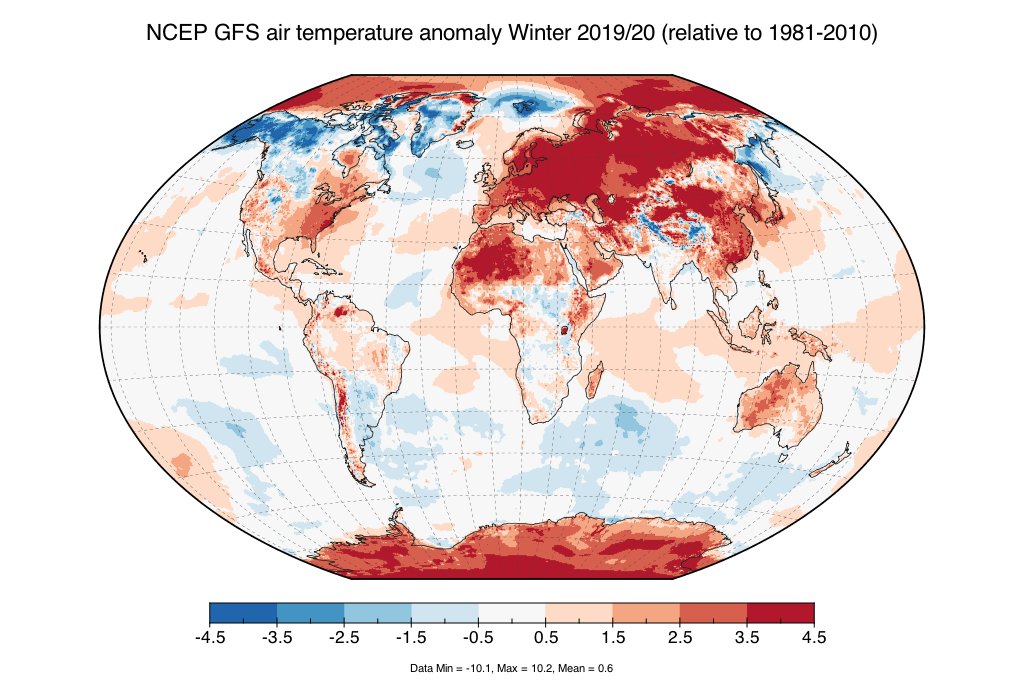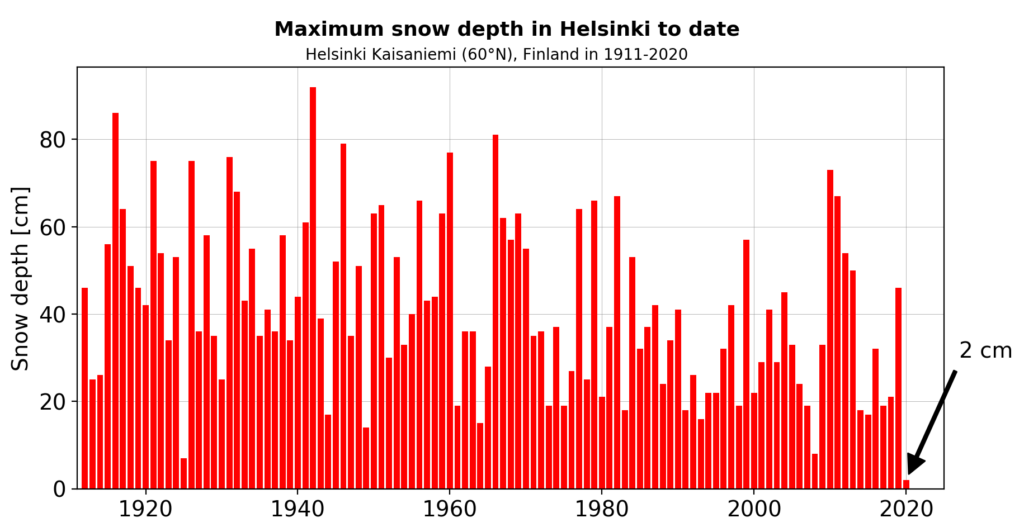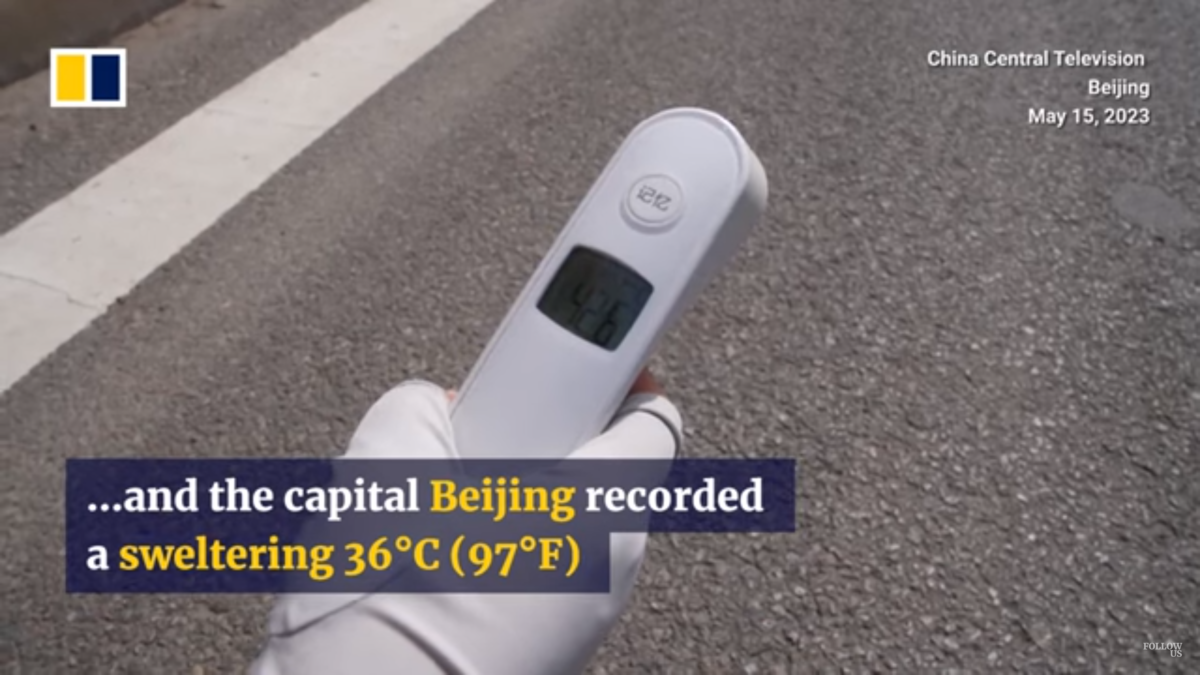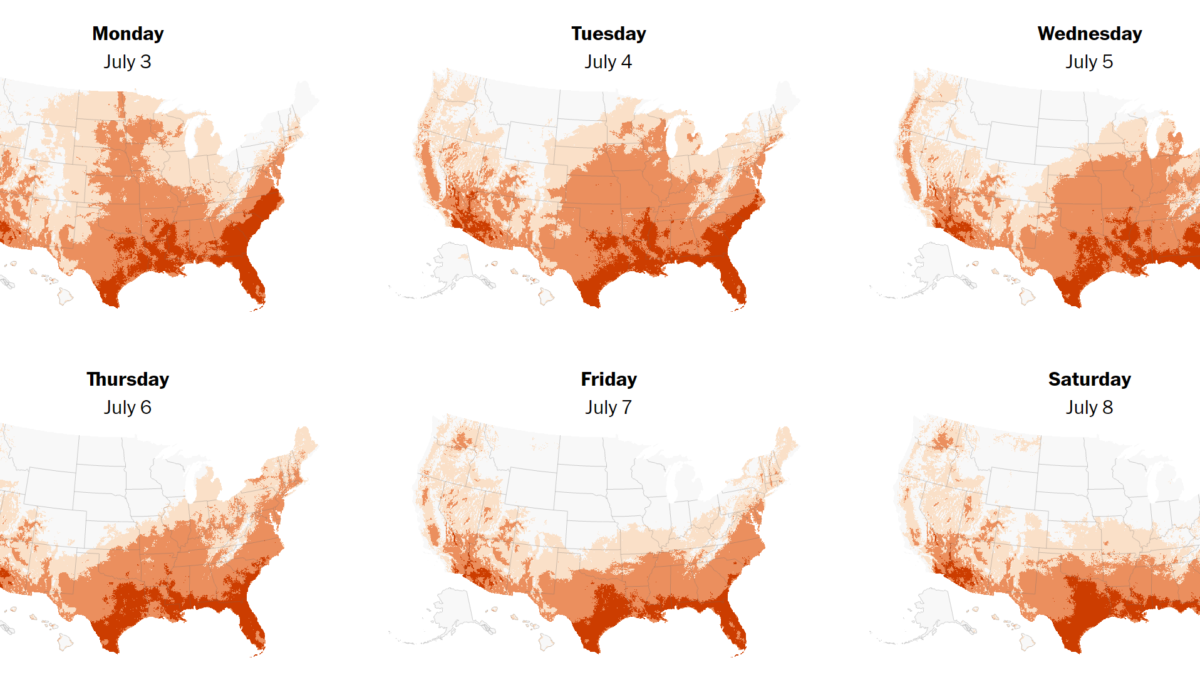Winter 2019/2020 warmest on record in Moscow, first winter to average above freezing – Temperature milestones set across Europe and North America – German ice wine harvest fails for first time on record

By Andrew Freedman
2 March 2020
(The Washington Post) – The meteorological winter of 2019-2020 shattered temperature records in Russia and France as well as other parts of Europe and the United States. In Moscow, this was the warmest winter in nearly 200 years of record-keeping, and the first winter there to have an average temperature at or above 32 degrees (0 Celsius).
The average winter temperature during the months of December, January and February in Moscow was 32.3 degrees (0.2 Celsius), which is 11.3 degrees (6.3 Celsius) above the 1981-2010 average, and shatters the previous record held by the winter of 1960-61 by an astonishing 3.5 degrees (2.8 Celsius), according to Etienne Kapikian of Meteo France, along with the Russian TASS news agency.
In Moscow, officials brought in artificial snow for New Year’s celebrations because both December and January hit monthly temperature records as the city went through a rare snow drought.
Data is still coming in, but it’s possible that Russia as a whole set a record its warmest winter yet as unusually mild conditions were seen in Siberia as well.

Other parts of Europe also missed out on winter.
In Helsinki, no snow fell in January or February for the first time on record, and just 0.2 centimeters fell during the entire winter. Not surprisingly, Finland saw record warmth for the season.
France as a whole had its warmest winter on record. According to Meteo France, the average temperature this winter was 4.86 degrees (2.7 Celsius) above average.
In Germany, the country’s ice wine harvest failed for the first time on record as temperatures failed to drop as low as 19 degrees in any of the country’s 13 wine-growing regions, according to Ernst Büscher from the German Wine Institute (DWI), in a statement. Ice wine is a sweet dessert wine produced from frozen grapes.

“The 2019 vintage will go down in history here in Germany as the first vintage in which the ice wine harvest couldn’t be produced nationwide,” the statement said. The amount of ice wine produced in Germany has been declining in recent years as winters have warmed, but production was still possible until this year.
“If the warm winters continue in the next few years, ice wines from German wine regions will soon become even more of a rarity than they already are,” Büscher said. In general, the wine industry already is seeing the effects from climate change, with vintners from Napa to the Loire Valley having to adapt to more scorching summers and wild swings in temperature and precipitation patterns.
Numerous U.S. cities also had a top five warmest winter, particularly areas east of the Mississippi River, with well-below-average snowfall along the East Coast in particular. In Washington, through Monday, only 0.6 inches of snow accumulated for the winter, compared with the average of 15.4 inches. [more]
Moscow crushes record for warmest winter as milestones are set across Europe and North America


